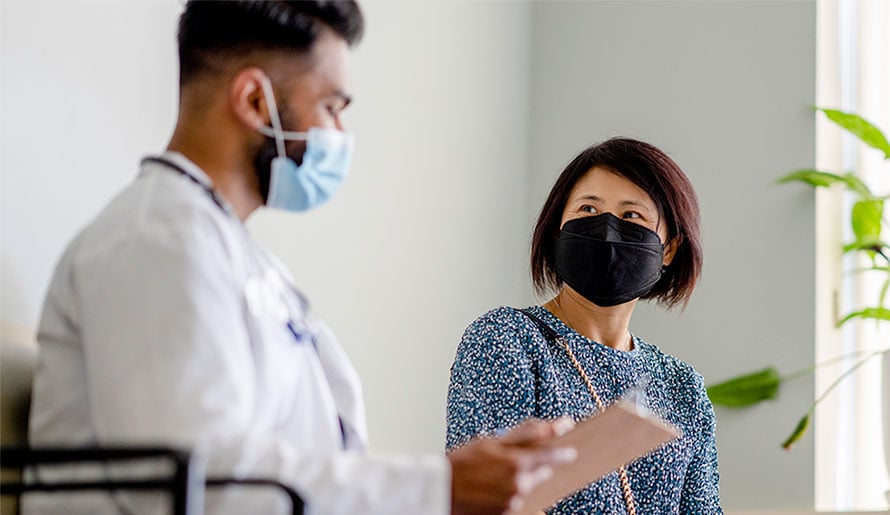Colorectal Cancer Signs and Symptoms

Colorectal cancer begins in the colon or rectum, which together form the final section of the digestive tract. Also known as the large intestine, the colon is a long, hollow tube that connects to the end of the small intestine. The rectum is the last several inches of the colon, which ends at the anus. After absorbing water and electrolytes from food that has passed through the small intestine, the colon produces solid waste (stool). The rectum stores the stool until it is eliminated from the body through the anus during a bowel movement.
In many cases, colorectal cancer develops after benign growths (precancerous polyps) in the lining of the colon or rectum progress and form tumors. Colorectal polyps are common and most do not become cancerous. Routine screening tests, such as periodic colonoscopies, can often detect precancerous polyps as well as early-stage colorectal tumors when they can be effectively treated. For this reason, colorectal cancer has a high cure rate.
Colorectal cancer is one of the most common cancers worldwide. Although it can occur at any age, most cases are diagnosed after age 50. As with any type of cancer, an early diagnosis of colorectal cancer is the key to achieving the best possible outcome and quality of life.
Early warning signs of colorectal cancer
Colorectal cancer does not always produce noticeable symptoms, especially in its earliest stages. This underscores the importance of routine screening tests. As a tumor progresses in the colon or rectum, the first warning sign may be a change in bowel habits that lasts for more than a few days.
Common symptoms of colorectal cancer
Depending on the size, stage and location of the tumor, colorectal cancer may cause symptoms that can be felt or seen.
What does colorectal cancer feel like?
Signs of colorectal cancer that can be felt include:
- Persistent diarrhea or constipation
- A sensation that the bowel does not fully empty during a bowel movement
- Abdominal pain, cramping or gas
- A lump or mass that can be felt in the abdomen
- Unexplained weakness or fatigue
What does colorectal cancer look like?
Signs of colorectal cancer that can be seen include:
- Narrow stools
- Bloody, bright red or dark-colored stools
- Rectal bleeding
- Unintended weight loss
Colorectal cancer vs. hemorrhoids
While bloody stools can be a symptom of colorectal cancer, they are also a common sign of hemorrhoids, which are swollen veins in or around the rectum and anus. Internal hemorrhoids often cause painless bleeding during bowel movements. In addition to rectal bleeding, external hemorrhoids can cause symptoms that are not usually associated with colorectal cancer, such as pain, itching, irritation, lumps and swelling in the anal cavity. Still, it is important to discuss any unusual changes with a physician who can provide an accurate diagnosis and suggest an appropriate treatment plan.
Symptoms of advanced colorectal cancer
As a colorectal tumor advances, it may invade the surrounding tissues. If cancerous cells enter the bloodstream or lymphatic system, they may circulate throughout the body and spread (metastasize) to distant tissues or organs. The symptoms of metastatic colorectal cancer can vary depending on the part of the body affected, such as the:
- Liver – Jaundice or abdominal swelling
- Lungs – Shortness of breath
- Bones – Bone pain and recurrent fractures
- Brain – Dizziness, headaches and seizures
Benefit from world-class care at Moffitt Cancer Center
The multispecialty team in Moffitt’s highly acclaimed Gastrointestinal Oncology Program diagnoses and treats all types of cancer that can affect the gastrointestinal tract, including colorectal cancer. We offer the latest treatment options, including a robust portfolio of clinical trials, and our groundbreaking research is recognized by the National Cancer Institute (NCI). Moffitt is the only NCI-designated Comprehensive Cancer Center based in Florida.
If you would like to learn more about colorectal cancer symptoms or risk factors, you can request an appointment with a specialist in our Gastrointestinal Oncology Program by calling 1-888-663-3488 or submitting a new patient registration form online. We do not require referrals.
